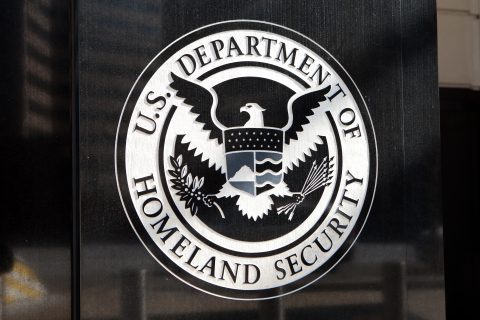Economics

Senate Democrats Propose Alternate Border Security Bill
Today, Senators Chuck Schumer (D-NY) and Claire McCaskill (D-MO) released a Border Security Proposal which would provide $600 million in offset funding for various border security provisions. The bill was a counter to a different border security bill proposed by Republican Arizona Senators Jon Kyl and John McCain,… Read More

Why Some States Considering Immigration Legislation Might Be Jumping Off the Arizona Bandwagon
Following the district court’s ruling enjoining the most controversial provisions of SB 1070 last week, some states are now deciding whether or not to move forward with their own version of Arizona’s immigration legislation—or are at least considering dumping the Arizona-style provisions that U.S. District Judge Susan Bolton temporarily halted. Currently, 22 states have introduced or are considering introducing similar legislation. State legislators are citing fear of costly lawsuits and a charged political environment in which restrictive immigration legislation might not pass as factors in their decision. The city of Fremont, Nebraska, for example, recently halted the enforcement of its enforcement legislation (which prohibits the hiring of or renting to undocumented immigrants) in the face of legal challenges from civil rights groups. Read More

FAIR’s Loosening Grip on Economic Reality
This week, the Federation for American Immigration Reform (FAIR) came out with more fuel for the anti-immigrant movement’s fire. Their most recent publication discusses the costs of unauthorized immigration to the United States. As usual, FAIR has put out a highly misleading fiscal snapshot of the costs allegedly imposed on U.S. taxpayers by unauthorized immigrants and completely discounts the economic contributions of unauthorized workers and consumers. Moreover, FAIR inflates their costs in a variety of ways and conveniently ignores any contributions that would offset these costs. Read More

SB 1070 “Gets Tough” on Arizona’s Housing Market
With only six weeks until Arizona’s immigration enforcement law goes into effect, area housing analysts are already expecting the worst. According to the Arizona Republic, housing experts anticipate that SB 1070 will not only drive illegal immigrants out of the state, but legal residents and potential new homebuyers with them—“departures from a state where growth is the economic foundation.” The resulting exodus will likely spur more foreclosures and create more vacant homes and apartments, which as real-estate analysts point out, will scare off potential homebuyers who fear lower home values. With a budget deficit of $4.5 billion and an economy struggling to get back on its feet, a declining housing market is the last thing Arizonans need. Read More

Can Arizona Afford to Implement S.B. 1070?
As the deadline for signing/vetoing Arizona’s immigration enforcement law (S.B. 1070) draws near, Arizona Governor Jan Brewer has more than just the moral and ethical implications of the law to consider. The proposed “Support Our Law Enforcement and Safe Neighborhoods Act,” a bill that makes it a misdemeanor to fail to carry proper immigration documents and requires police to determine a person’s immigration status, could come with heftier price tag than people may realize. While the Arizona legislature has not yet determined the costs associated with S.B. 1070 (the state legislature failed to attribute a cost in their attached fiscal note), several economic indicators reveal the potential cost of implementation to Arizona taxpayers and the residual consequences of driving unauthorized immigrations out of Arizona. Read More

Immigration Reform Raises Revenue, While Enforcement-Only Strategies Throw Tax Dollars Away
Tax Day is a fitting time to consider the billions of dollars which the federal government wastes each year attempting to put a stop to unauthorized immigration through an “enforcement only” strategy—and the billions of new taxpayer dollars which would flow from comprehensive immigration reform that includes a pathway to legal status for unauthorized immigrants already in the United States. As the IPC points out in a new fact sheet, “we spend huge sums of taxpayer money on immigration enforcement, yet unauthorized immigrants have not been deterred from coming to the United States when there are jobs available.” As a result, enforcement resources are needlessly wasted tracking down unauthorized job seekers and people trying to reunite with family members in the United States, rather than focused on finding individuals who are actually a threat to national security or public safety. Read More

Immigration Reform: The Not So Merry Go Round of Washington Politics
First, Republicans said they wouldn’t work with Democrats on immigration if health care passed—now they will. The Obama administration announced that immigration enforcement would target dangerous criminals only—but as it turns out, they aren’t. Senator Chuck Schumer said we’re moving forward on immigration, while his partner, Senator Lindsey Graham, insists that the President write a bill and take the lead first. Senator John McCain was a staunch immigrant supporter—that is, until he received political challenges from the right. Lou Dobbs hates immigrants—or does he? Immigration reform is dead, alive, dead, no alive. Our nation is facing a deficit and immigration reform could help fill the hole—but some feel that reform is too big a lift. If you aren’t studying the day-to-day actions of politicians and administration types in Washington, you can miss a lot. And if you are, it’s all a bit dizzying. Read More

Committee Hearings on Visa Application Costs and Overstays Show Partisan Divide
This week, members of the House of Representatives held hearings dealing with visa application costs and visa overstays—and the partisan divide between Democrats and Republicans was as clear as ever. As Congress and immigration experts continued to debate the specifics of visa processing and overstays, the need for an entire immigration overhaul—an overhaul that would tackle these issues and others more directly and on a larger scale—became even more apparent. Read More

Wide Cast of Characters Discuss the Benefits of Legalization
While comprehensive immigration reform (CIR) remains stalled somewhere between the House, Senate, and the Administration, four noted experts were interviewed by the Council on Foreign Relations (CFR) about how immigration reform would affect the U.S. economy. These interviews were posted on CFR’s website yesterday. David Scott Fitzgerald, Associate Director for the Center for Comparative Immigration Studies at the University of California, San Diego; Heidi Shierholz, an economist for the Economic Policy Institute; Mark Krikorian, Executive Director for the Center for Immigration Studies; and James Carafano, Director for Foreign Policy Studies at the Heritage Foundation offered opinions on immigration and the economy. While their opinions varied widely, there were notable areas of agreement: our system is in need of repair, and legalization would not be the great harm to our economy that restrictionists tout. Read More

Napolitano Unveils Enforcement-Heavy Immigration Budget for DHS
The Fiscal Year (FY) 2011 budget request for the Department of Homeland Security (DHS), which Homeland Security Secretary Janet Napolitano unveiled yesterday, exemplifies the enforcement mentality which pervades the federal government’s approach to immigration. The two immigration-enforcement components of DHS—Customs and Border Protection (CBP) and Immigration and Customs Enforcement (ICE)—consume 30% of the department’s total budget, while the immigration-services component, U.S. Citizenship and Immigration Services, is allotted a mere 5%. However, the budget request does throw a few much-needed crumbs to programs such as Asylum and Refugee Services and Immigrant Integration and Citizenship. Read More
Make a contribution
Make a direct impact on the lives of immigrants.
